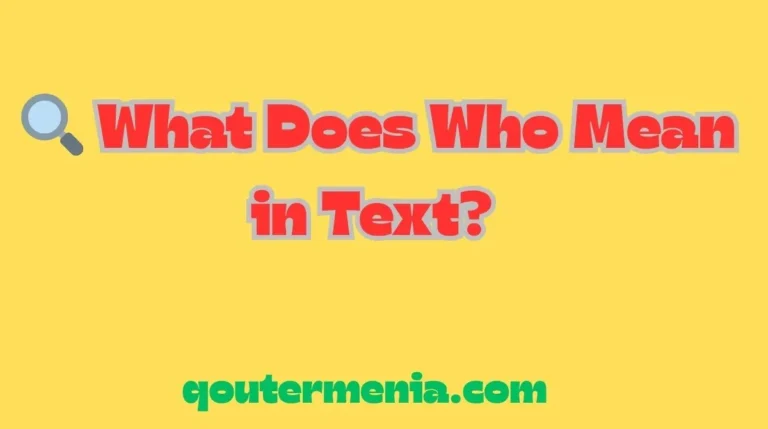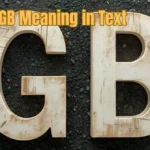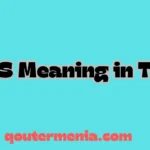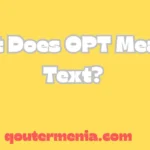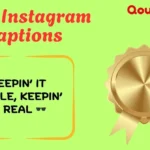If you’ve ever received a message like “Who?” in a chat or comment and paused for a second wondering what it means — you’re not alone. The word “who” might look simple, but in texting culture, its meaning shifts depending on tone, platform, and context.
People often search “what does who mean in text” because they notice it used differently in casual chats, social media posts, or even online debates. Sometimes it’s a genuine question; other times it carries sarcasm, confusion, or even flirtation.
In this guide, we’ll explore what “who” really means in text, how it’s used across different platforms like WhatsApp, Instagram, Snapchat, and TikTok, and how you can reply naturally when someone texts you “who?”.
🧠 Meaning & Definition
At its core, “who” is an interrogative pronoun used to ask about a person’s identity — “Who is that?” or “Who said that?”.
However, in texting and social media culture, the meaning often expands beyond grammar. Depending on the tone, “who” can carry multiple layers of intent:
| Context | Meaning | Example |
|---|---|---|
| Genuine Inquiry | The person truly doesn’t know | “Who texted you?” |
| Sarcasm or Shade | Pretending not to know someone | “Who?” (after someone mentions an ex) |
| Curiosity | Wanting more info | “Who are you talking about?” |
| Playful or Flirty | Teasing or engaging | “Who, me? 😏” |
| Defensive | Downplaying a situation | “Who said that? Not me.” |
So, “who” is not always about asking — it can also express emotion, attitude, or humor.
📜 Background & Origin
The word “who” originates from Old English “hwā,” related to Old High German “hwer” and Latin “quis.” It’s been used in English since before the 12th century, primarily as a pronoun to identify people.
Over time, “who” evolved beyond its dictionary role. In modern texting culture, short, minimalistic replies like “who?” became tools for expressing mood — curiosity, sarcasm, or even disinterest.
This trend grew in the early 2000s with SMS texting, when people started shortening and simplifying communication. The rise of memes and viral phrases further expanded its use. For instance, “Who?” memes often mock someone irrelevant or unimportant, implying “I don’t even know them.”
💬 Usage in Different Contexts
Let’s break down how “who” behaves across different chat settings:
1. Casual Chats
In everyday texting, “who” is usually used for clarification or curiosity.
A: I met him yesterday.
B: Who?
Simple, direct, and friendly.
2. Sarcastic or Shady Use
On social media, “who?” often acts as a shade or dismissal.
A: Did you see your ex’s post?
B: Who? 😏
This version signals “I don’t care” or “they’re irrelevant.”
3. Professional Use
In work or academic settings, “who” stays literal and formal:
“Who is leading the project?”
“Who can verify this report?”
The tone here is straightforward — no hidden emotion.
4. Flirty or Playful Use
Sometimes, “who” is used with humor:
A: Someone can’t stop thinking about you 😉
B: Who, me? 😅
It’s fun, teasing, and emotionally expressive.
📱 Meanings Across Platforms
Different apps give “who” unique tones and contexts.
| Platform | Typical Meaning | Example |
|---|---|---|
| Friendly or questioning | “Who messaged me?” | |
| Dismissive or shady | Comment: “Who?” under a post | |
| TikTok | Meme or reaction phrase | Caption: “POV: when your ex texts you — who?” |
| Snapchat | Private curiosity | “Who’s that on your story?” |
| Twitter (X) | Sarcasm or subtle insult | “Who is this? Never heard of her.” |
👉 Tip: Emojis and tone markers (like “😏” or “😂”) can drastically change the vibe of “who” in text.
⚙️ “Who” in Other Fields
Interestingly, “WHO” also carries meanings outside of texting and social media.
| Field | Full Form / Meaning | Explanation |
|---|---|---|
| Medicine | World Health Organization (WHO) | A global health body under the UN. |
| Physics / Engineering | Not common as an acronym | But may appear in context-specific abbreviations. |
| Aviation / Military | WHO = West Houston Airport (IATA code) | Used in flight tracking and aviation contexts. |
| Technology | Unix command “who” | Displays users currently logged into a system. |
So, if someone types “WHO” in all caps, context is key — it might not be slang at all but a professional acronym.
🚫 Common Misconceptions & Mistakes
Here are frequent misunderstandings people have about “who” in text:
- Assuming it’s always literal — Many think it only means “asking identity,” but tone can shift its intent.
- Confusing “who” with “whom” — Grammatically, “who” = subject; “whom” = object, though most texters ignore this.
- Reading sarcasm wrong — Without context or emojis, “who” can sound rude.
- Overusing it as a meme — In professional or serious chats, “who?” may seem dismissive or unprofessional.
🔄 Similar Terms & Alternatives
| Word / Phrase | Meaning | Example Usage |
|---|---|---|
| Whom | More formal version of “who” | “Whom did you call?” |
| Which person | Clarifying identity | “Which person said that?” |
| What person | Informal synonym | “What person are you talking about?” |
| Who’s that? | Expanded, friendly form | “Who’s that in your photo?” |
| IDK who | Used to express confusion | “IDK who sent this.” |
Tip: In casual texting, “who?” remains the most common and accepted form.
💡 How to Respond When Someone Texts “Who?”
Your reply depends on the tone you sense. Here are some natural ways to respond:
1. Normal / Curious Context
A: “I met Jake yesterday.”
B: “Who?”
A: “Jake from the gym.”
2. Playful / Flirty
A: “Someone’s missing you 😉”
B: “Who, me? 😅”
3. Sarcastic or Shady
A: “Your ex was talking about you.”
B: “Who? Never heard of them 😏”
4. Professional
A: “We’ll need approval first.”
B: “Who should I contact?”
🔍 Differences from Similar Words
| Word | Difference | Example |
|---|---|---|
| Who | Refers to a person | “Who called you?” |
| Whom | Used formally as an object | “Whom did you see?” |
| Whose | Shows possession | “Whose phone is this?” |
| Which | Refers to selection | “Which one do you want?” |
| What | Refers to things | “What happened?” |
These subtle differences often disappear in casual texting, where “who” dominates due to simplicity and speed.
❤️ Relevance in Online Conversations & Dating Apps
On dating apps like Tinder, Bumble, or Hinge, “who” often appears during early conversations:
- Flirty context: “Who said I’m not single? 😜”
- Curious tone: “Who told you that?”
- Defensive vibe: “Who asked? 😅”
It’s part of digital body language — expressing curiosity, playfulness, or teasing without long texts.
In 2025’s fast-scrolling culture, such short, loaded replies make chats snappy and emotionally rich.
📈 Popularity & Trends Over Time
According to Google Trends, searches for “what does who mean in text” have risen steadily since 2022.
This reflects the growing curiosity about internet slang interpretation, especially among younger users navigating tone in online chats.
Social media monitoring shows that on Twitter (X) and TikTok, the word “who?” is often used in memes and reaction posts, particularly when mocking someone irrelevant or exaggerating surprise.
For example:
Caption: “My ex trying to come back.”
Comment: “Who? 😂”
It’s funny, dismissive, and perfectly Gen Z.
❓FAQs About “Who” in Text
1. What does “who?” mean in a text message?
It usually means someone is asking about a person’s identity, but it can also express sarcasm or shade depending on tone.
2. Why do people say “who?” sarcastically?
They use it to downplay someone’s importance or act like they don’t care. Example: “Who? Never heard of her.”
3. What does “who me?” mean?
It’s a playful or modest reaction to being mentioned — often flirtatious. Example: “Who, me? 😅”
4. Is “who” rude in text?
It can be, if used without context or emojis. Adding tone indicators or emojis helps clarify intention.
5. What’s the difference between “who” and “whom”?
“Who” is used as the subject of a sentence (Who called?). “Whom” is used as the object (Whom did you call?).
🏁 Conclusion
The word “who” might seem tiny, but in the world of texting and online culture, it’s a powerhouse of meaning. Depending on how it’s used — seriously, playfully, or sarcastically — “who” can reveal mood, attitude, or emotion in just one word.
Whether you see it on Instagram comments, Snapchat replies, or TikTok memes, always pay attention to tone and emojis. Context makes all the difference between curiosity and shade.
Next time someone texts you “who?”, you’ll know exactly what they mean — and how to respond perfectly. 😉

Emily Martin is the creative author at Qouter Menia, crafting heartfelt quotes and captions that beautifully express emotions.

